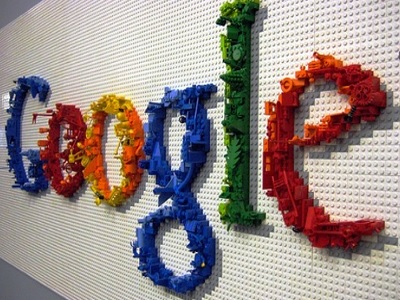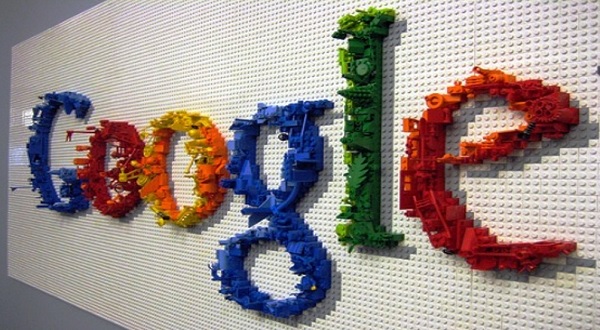Google's 10 Gigabit Internet vs. The World
Google could bring 10 gigabit Internet to the masses, which would make it 10 times faster than Google Fiber. Here's how it would compare to the peak Internet connections around the world.


If you consistently find yourself frustrated with sluggish Internet speeds, Google may have a solution soon. The search engine giant is working on technology that could offer data rates as fast as 10 gigabits per second-- which it claims is 10 times speedier than today's already blazing Google Fiber.
The project is part of Google's long-term initiative to bring next-generation Internet that can better accommodate data-intensive applications and stable connections. Google Fiber currently offers data transfer speeds that reach 1 Gbps, which is significantly higher than the average US connection speed of 7.2 Mbps, according to ZDNet, and the average global connection speed of 3.6 Mbps, as research firm Akamai noted in its most recent study.
Google's goal of 10 Gbps is certainly speedy, but to put that number in perspective here's how it compares to the fastest average peak Internet connections around the globe.
MORE:What Gaming Looks Like on Google Glass
Hong Kong
As of Q3 2013, Hong Kong boasts the fastest Internet connections in the world. With an average peak speed of 65.4 Mbps, Hong Kong landed the number one spot in Akamai's quarterly State of the Internet study. This network speed is up by 21 percent when compared to its rates from Q3 2012, and it also nearly quadruples the global average peak connection speed of 17.9 Mbps. Still, considering 1,000 megabits equals one gigabit, it doesn't come close to the Internet speeds Google claims to be working on.
South Korea
Sign up to get the BEST of Tom's Guide direct to your inbox.
Get instant access to breaking news, the hottest reviews, great deals and helpful tips.
South Korea, home to electronics giantsLG and Samsung, boasts an average peak Internet speed of 63.6 MBps. This is a 19 percent increase when compared to its data speeds from the previous quarter.
Japan
Japan ranked third on Akamai's list of the fastest global peak Internet speeds. As of Q3 2013, Japan's fiber optics delivered an impressive 52 Mbps, placing it just under South Korea on the list.
Singapore
Singapore boasted an average peak Internet speed of 50.1 Mbps, nearly tripling the global average peak speed as of Q3 2013.
Israel
A home to many budding startups such as Waze and Outbrain, it's no surprise that Israel offers one of the fastest Internet connections in the world. As of Q3 2013 Israel's peak average Internet connection hit 47.7 Mbps.
The United States resides at number 13 on Akamai's list with an average peak Internet speed of 37 Mbps-- a far cry from the 10Gbps Google hopes to achieve. To put that number in perspective, 37 Mbps equals roughly 0.036 Gbps.
Google's effort is similar to a project in the UK, in which researchers were able to hit data speeds of 10 Gbps through a technology called Li-Fi, which uses light-emitting diodes with flicker adjustments to send out digital information.
Lisa Eadicicco was a staff writer and editor for Laptop Mag and Tom's Guide. Her articles have also appeared in MSN, AOL, The Independent, Time Magazine, and many more. She is now Senior Tech Correspondant for Business Insider, covering Apple products and other gadgets.
-
thechief73 Yeah, and I am going to hover convert my time machine next year for just $39,999.95Reply -
ssalim This is awesome. I'm paying almost US$40 per month for 5Mbps down 1Mbps up. What a ripoff.Reply -
austenwhd In India, a 3mpbs Unlimited (Unlimited according to my ISP is 25Gb at reduced speed of 144kpbs plus the 15GB allotted download limit at said speed) plan that gives an average speed download speed of 150 kbps cost me $26 a month. Considering, the fact that i spend about $1.53 per GB of download, i call that a serious ripoff. I must sue somebody...Reply -
dragonsqrrl It's great that Google is continuing to push the limits of ISP bandwidth, but I wish they would also put an equal effort into broadening the availability of their existing Gb fiber service. It's been limited to 3 cities since it was first announced.Reply -
gm0n3y Kudos to Google for pushing the status quo, but I'd rather they rolled out 1gbps to a large number of people than 10gbps to a small number. How about get 1gbps into all of the 1 million+ cities in the US? That would be appreciated I'm sure.*Note: I don't live in the US.Reply -
thechief73 I second your statement dragonsqrrl and gm0n3y. That was the point of my vague sarcastic comment, that nobody seemed to get. Google fiber was announced in 2011, meaning it was in development for some time before that. Here it is 2014 and as you said its now in just three dang cities. Woop de do Google. Why even bother talking about 10GB internet? This is one of those "Hey the future is knocking at the door and it will be game changing when it gets here." But we wait and ten years past and were stuck with the same outdated technology and infrastructure from ten plus years ago and at higher prices to boot. Call me when I can sign up for it at respectable prices Google. BTW, peak speed data is pointless, the US is ranked 32nd in average downstream speeds.Reply -
Immaculate All you guys complaining about it not being in every city is just ridiculous. It is brand new practically. Kansas City was the first city, I just got this fiber service probably 2 1/2 months ago. Its been in planning here what seems like 2 years or more. In each city not everyone wants the fiber. They have what they call "fiberhoods" in each fiberhood enough people have to actually sign up for their neighborhood to be hooked up to the fiber network. If the minimum isnt met then they move onto the next fiberhood and then hook your neighborhood up after they got all the ones that met their minimums. They give each neighborhood quite a few months to sign up so they won't get skipped.Reply -
Immaculate All you guys complaining about it not being in every city is just ridiculous. It is brand new practically. Kansas City was the first city, I just got this fiber service probably 2 1/2 months ago. Its been in planning here what seems like 2 years or more. In each city not everyone wants the fiber. They have what they call "fiberhoods" in each fiberhood enough people have to actually sign up for their neighborhood to be hooked up to the fiber network. If the minimum isnt met then they move onto the next fiberhood and then hook your neighborhood up after they got all the ones that met their minimums. They give each neighborhood quite a few months to sign up so they won't get skipped.Reply -
Come to Australia where you apy $84 a month for 300kbps down... then get rolled by your goverments total stupidity when rolling out a fibre to the premises network.Reply
